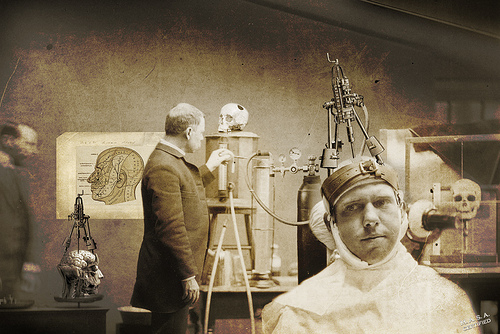
We are living at a time of amazing time of discovery.
Our new brain science has provided us greater awareness of how the human brain operates. Not only that, we can upskill certain brain functions to provide us a cognitive edge in our daily activities.
Being able to design and create a fitter brain tailored to your own needs is not something out of science fiction, it is available to us all right now.
However, the caveat on the excitement and interest generated by our new knowledge is that
a) There is still an awful lot we don’t know
b) A lot of the information we have collated is a bit of a mish-mash, yet to be consolidated into a more definitive theoretical framework.
In regards to the complexity of the brain science yet to be unravelled, neuroscientist Rafael Yuste made the comment that neuroscientists by studying small groups or individual neurons are essentially “trying to understanding a television program by looking at one pixel on the screen.”
Of all the discoveries uncovered so far there are a couple of real standouts because of the massive implication they have for our health, wellbeing and performance
Neuroplasticity.
Far from being hardwired our 87 billion neurons are continually looking for the opportunity to form new synaptic connections with other neurons. This provides us the capability of always being able to learn new skills and adapt to change across the trajectory of our lifespan.
The impact of gut bacteria in directing the brain.
We have a gut microbiome that has been found to be linked to a number of brain disorders including autism, depression and anxiety. Our gut bacteria direct our food choices (and you thought you made the choice on the menu!) that influence our mood and cognition.
The role of exercise in keeping our brain ‘young’.
The discovery that excites me the most after neuroplasticity, is the growing evidence that exercise could be the real key to developing better brain health and function. Exercise really does seem to be the best thing since sliced bread. It staves off cognitive decline, can help in managing Parkinson’s symptoms and boosts endorphins so we feel happier.
It is well understood that exercise is beneficial to the brain because of the increase in oxygen and nutrient flow. It’s also known to stimulate the release of certain neurochemicals including BDNF that assists in the maintenance of our existing neurons, and the survival and maturation of new neurons through the process of neurogenesis. Current research is now looking to isolate specific factors in the blood boosted by exercise, that reprograms brain tissue, making it more active and more resilient.
Could the fountain of youth really reside in our sneakers?
Brain fitness is the key for designing a high performance brain. Our brain health is something we have previously taken for granted and failed to take adequate care of.
With the brain science now available, we really have no excuse not to be taking advantage of what brain fitness provides: the ability to develop our cognitive edge.
In a world experiencing growing levels of stress, stress related illness, anxiety and depression, what do you see as the most pressing need we need to be addressing first as a society?
If adopting a brain healthy lifestyle that addressed the top 7 potentially modifiable risk factors could reduce the potential number of people to be diagnosed with Alzheimer’s by 50%, how would you go about spreading the word?

